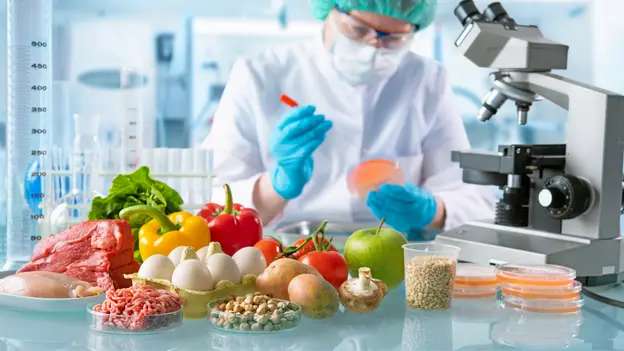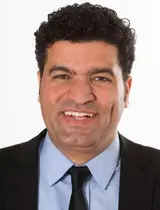Tandem Project
From Food Waste to Food Safety
Laboratory Study & Symposium
Food loss or waste occurs when food, originally meant for people to eat, ends up outside the human consumption cycle due to various factors such as issues during production, post-harvest processes, handling, or storage. Sixty percent of the total food waste made per year worldwide accounts for only fruits and vegetables losses and waste. The United Nations Sustainable Development Goals (SDGs) address the importance of decreasing food loss and waste for a sustainable production and consumption under Goal 12.3. Therefore, many research projects are being conducted to end up with the right ways that can aid in the reduction of these wastes. Food wastes from many agro-industries can be transformed into products that can be used for different purposes, owed to the high valuable bioactive compounds particularly polyphenols exhibiting important antioxidant and antimicrobial activity.
Extraction of phenolic compounds from fruit waste
AGYA member Dr. Nada El Darra and her team uses different extraction techniques of phenolic compounds from different food products such as dates pits and kiwi peels to test their biological activities such as antiradical, antibacterial and anticancer activities. The preparations for the tests takes place at Beirut Arab University (BAU) and Saint Joseph University (USJ), where the bioactive compounds will be isolated from the by-products. The actual biological activity tests are conducted in the laboratories at BAU, as well at the encapsulation of the extract and its testing on selected food items as natural antibacterial agents.
Using polyphenolic exhaust waste as water filter
The project also implements the use of the exhausted waste, which remain after the polyphenol recovery and may be usable as natural filters for water treatment. The capacity of these natural bio-sorbents and its potential to remove water pollutants such as heavy metals, or pesticide residues, is also analyzed at BAU. As a result the project partners N. El Darra and Prof. Dr. Mahmoud Abdel-Hafiez aim to develop a filter prototype to treat waste water, collaborating with AGYA member Dr. Hiba N. Rajha and Dr. A. Hijazi (Lebanese University).
Symposium on food safety
In the framework of a symposium entitled ‛SaferFood: Navigating Food Safety in Lebanon and Beyond’ on 23 October 2023, AGYA members Nada El Darra, Mahmoud Abdel-Hafiez, and Prof. Dr. Shadi Albarqouni will share their common research interest on food safety and state-of-the-art prevention methods. Invited speakers will use this option to discuss about different food contaminants, the status of food safety in Lebanon and globally as well as technologies assisting food safety prevention such as artificial intelligence and biosensors. By nature, the symposium on food safety contaminants with the preventive approach of food safety by using AI and biosensors is highly interdisciplinary since experts from different fields will contribute to the topic from different point of perspectives.
- Disciplines Involved
- Food Engineering, Food Safety, Sustainable Development Studies, Physics
- Event Date
- 23 October 2023
- Venue
- Ali Rahed Hall, Beirut Arab University, Beirut, Lebanon
- Cooperation Partner
- Beirut Arab University, Lebanon
- Project Title
- From Food Waste Valorization to Food Safety: A Zero Waste Approach
- Year
- 2023
- Funding Scheme
- Tandem Project
- Countries Involved
- Lebanon, Germany
- AGYA Publication
- Evaluation of synergistic/antagonistic antibacterial activities of fatty oils from apricot, date, grape, and black seeds
- Valorization of Potato Peels (Solanum tuberosum) Using Infrared-Assisted Extraction: A Novel Sprouting Suppressant and Antibacterial Agent
- Optimized Extraction of Polyphenols from Kiwifruit Peels and Their Biological Activities


